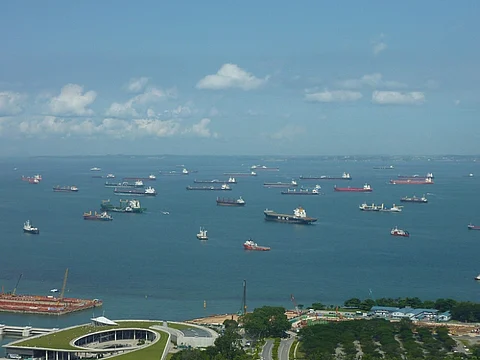

Fujitsu, with the cooperation of the Maritime and Port Authority of Singapore (MPA), has completed the first field trial of a new artificial intelligence (AI) based technology that could help ships avoid collisions.
The trial was carried out using the Singapore Strait, though which more than 1,000 ships reportedly pass each day.
During the trial, the system took past traffic data for the Singapore Strait and sorted specific information such as examples of collisions or near misses involving multiple vessels as well as examples of developing dynamic risk hotspots.
The collision risk prediction technology, which was benchmarked to human operators, was able to flag potential risks approximately 10 minutes before the near-miss.
Fujitsu theorises that, based on the results of the test, the technology would provide approximately five minutes lead time for human operators to execute necessary follow-on actions such as by advising certain vessels of imminent risk.
The technology was also able to pick out scenarios where the collision risk could be overlooked and raise the alert to a possible collision incident.
Fujitsu also claims the dynamic risk hotspot detection technology could detect risks up to 15 minutes in advance, enabling staff to take specific measures to avoid an incident.
Testing of the technology is set to continue in Singapore with the goal of making it available to maritime traffic controllers and ship operators by 2020.
